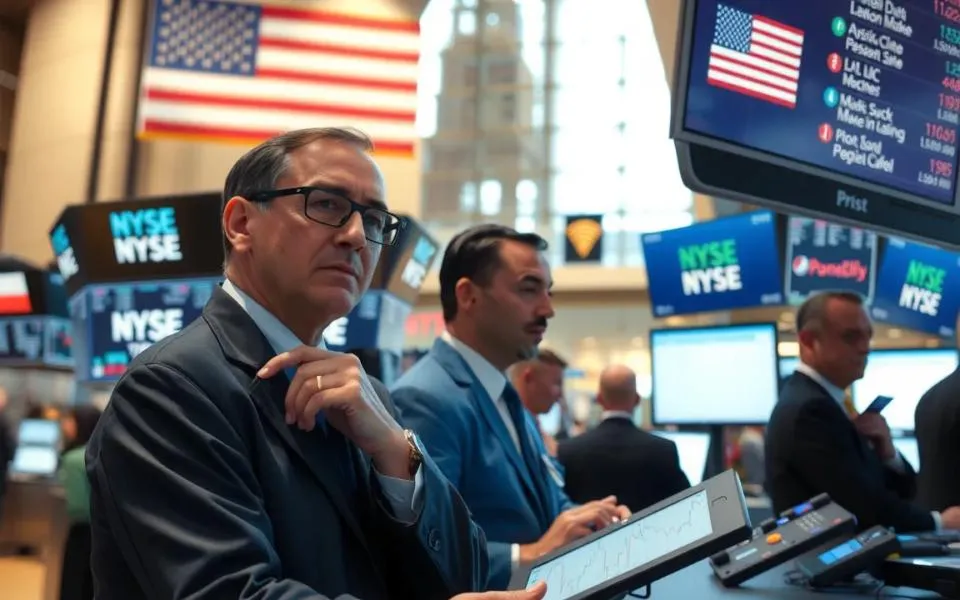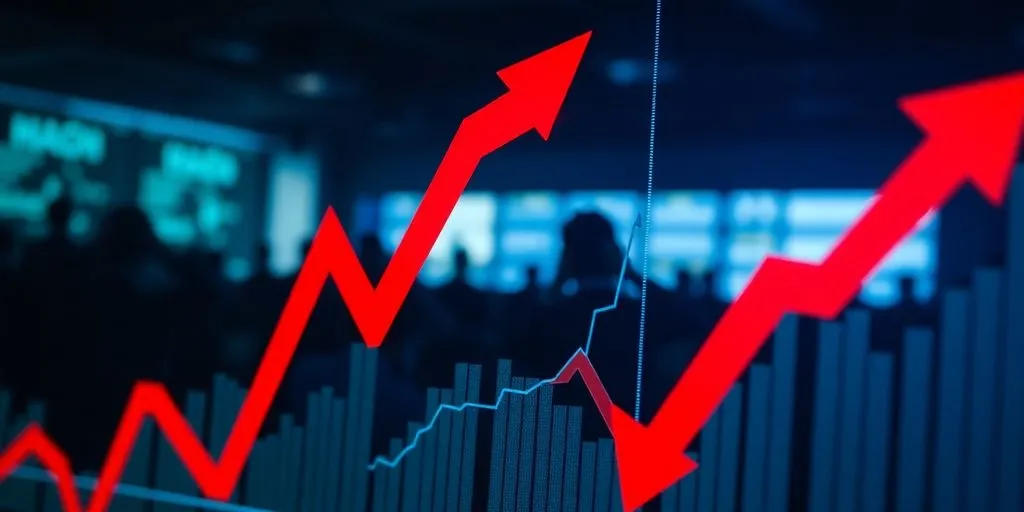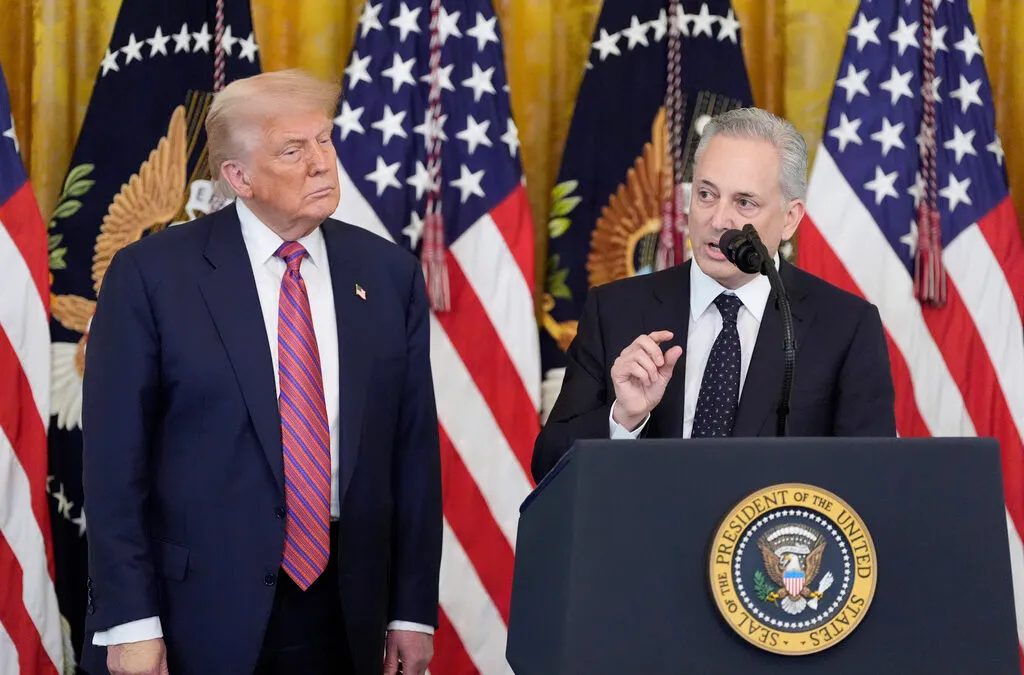The U.S. stock market has taken a sharp turn downward as renewed trade tensions and rising tariffs reignite fears of a recession. The Dow Jones Industrial Average has shed nearly 12% over the last four weeks, while the S&P 500 and Nasdaq have also slid into correction territory. Investors are rattled, businesses are bracing, and policymakers are scrambling to contain the fallout.
What began as a policy move to pressure foreign trade partners—particularly China, India, and the European Union—has evolved into a full-scale market event. With retaliatory tariffs now piling up and consumer prices rising, Wall Street is increasingly pricing in the possibility of a slowdown, if not a full-blown recession, by early 2026.
🔁 Trade Tensions Back With a Vengeance
The latest market decline was triggered by the Biden administration’s announcement of a new round of tariffs on Chinese electronics and European auto parts—an effort to “rebalance trade” and protect domestic manufacturing. While intended as a strategic economic push, the move sparked an immediate backlash abroad. China responded with import restrictions on American agricultural goods and AI chips, while the EU vowed to retaliate with tariffs on U.S. tech and aerospace.
Global supply chains, already fragile after years of pandemic-related disruption, are again under strain. Multinational corporations are adjusting their forecasts downward, and several major firms—including Apple, Boeing, and Ford—have issued profit warnings for the second half of the year.
📊 Wall Street Takes the Hit
Investor confidence has taken a serious hit. The stock sell-off is being driven by multiple overlapping concerns:
- Tariff inflation: Higher import costs are feeding into overall inflation metrics, just as the Federal Reserve was preparing to pivot to rate cuts.
- Uncertainty in earnings: Businesses deal with reduced export volumes, constrained margins, and erratic cost structures.
- Global slowdown: Trade tensions are slowing business investment, which could cascade into broader economic contraction.
Tech stocks, which rely heavily on global markets and lean supply chains, have been hit particularly hard. Meanwhile, safe havens like gold, Treasury bonds, and cash equivalents have seen increased inflows.
“The fear is not just about tariffs — it’s about contagion,” says Janelle Tran, senior analyst at MorganPark Capital. “You have inflation, disrupted trade, and slowing global demand, all hitting at once.”

🏛️ Policy Responses Fall Short (So Far)
Despite growing anxiety, policy responses remain politically charged and fragmented. While progressive Democrats demand consumer relief measures and negotiations to de-escalate the tariff war, congressional Republicans have supported the White House’s tough trade position.
The Federal Reserve has signaled it is “closely monitoring” market conditions, but has not yet indicated whether it will reverse course on interest rates. Some Fed watchers predict an emergency rate cut if market volatility continues, though others caution that further rate adjustments could reignite inflation.
In the meantime, corporate lobbyists are pressuring the administration to ease or delay implementation of some tariffs, especially those impacting semiconductors and EV components.
🛒 Main Street Feels the Squeeze
Beyond the trading floor, real economic impacts are being felt on Main Street. Prices for imported electronics, cars, and household goods are creeping higher. Small businesses that rely on foreign parts are grappling with thinning profit margins. Farmers who are once more caught in the crossfire of the U.S.-China stalemate must contend with supply gluts and declining export prices.
Consumers, already wary after years of inflation, are tightening their belts. Travel, entertainment, and retail sectors are beginning to see dips in consumer spending. Analysts warn that if sentiment drops further, the psychological drag could deepen the downturn.
🌐 Global Markets and Risk Contagion
International markets have mirrored the U.S. sell-off. Asian and European indices have declined, and emerging markets are feeling the double blow of trade disruption and capital flight. In particular, countries heavily dependent on exports to the U.S. or China—like Mexico, Vietnam, and Germany—are now downgrading their growth forecasts.
Currency markets are also showing strain. The dollar has strengthened on safe-haven flows, which could further hinder American exports. The Chinese yuan and euro have both slipped, fueling speculation of an impending currency skirmish layered on top of the tariff war.
“This isn’t 2018 again — it’s more serious,” warns Enrique Solano, global strategist at FairBank Group. “The economic wounds from COVID-19 haven’t fully healed, and now we’re risking a trade-induced contraction.”
🔮 Recession Watch: What Comes Next?
Although the U.S. is not in a recession right now, although there are some warning indicators.cEconomic growth for Q2 2025 has been revised downward to just 0.7%, and some forecasters predict negative GDP growth in Q4 if conditions don’t improve.
Job growth has slowed, but labor markets are still tight.Some sectors, like manufacturing and logistics, have begun layoffs or hiring freezes. Consumer confidence indices have declined for three straight months, and credit card delinquencies are ticking up.
Whether the economy tips into a technical recession depends largely on how fast tariffs escalate, how deep retaliations go, and how quickly policymakers can act to reverse course—or offer relief.
📘 FAQs: Stock Market & Tariff Turmoil 2025
1. Why are tariffs causing the stock market to fall?
Tariffs increase business costs, reduce international demand, and create uncertainty about future earnings. This spooks investors, who sell off stocks—especially in trade-sensitive sectors like tech, manufacturing, and agriculture.
2. Which sectors are hit hardest?
Technology, automotive, agriculture, and consumer electronics are the most affected, as they rely heavily on imports or exports subject to new tariffs.
3. Could this lead to a U.S. recession?
Yes. Prolonged tariff wars can slow consumer spending, reduce business investment, and disrupt trade flows—all of which raise the risk of recession.
4. How are global markets reacting?
Global markets are also declining. Major indices in Europe and Asia have fallen in tandem with U.S. stocks. Currency volatility and capital outflows are impacting emerging economies.
5. Is the government doing anything to stop the downturn?
So far, policy responses are limited. The Biden administration is defending the tariffs, though negotiations are reportedly underway behind the scenes. The Federal Reserve has not yet altered its rate policy but is watching markets closely.







